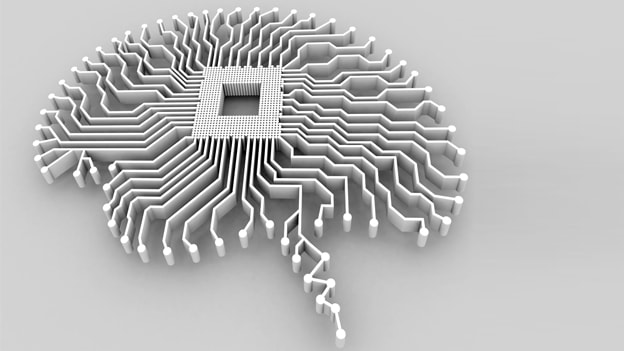Applying AI to the world of HR

Human talent currently remains one of the most dynamic parts of modern-day companies. Both time and investment over the years have gone into honing people practices, mostly in order to improve employee productivity and enabling the workforce to be ready for what is touted to be an increasingly uncertain business environment. But in times marked with large-scale business transformation, companies have found an ally in the shape of the very same technology that has been reshaping business processes at an ever-increasing pace.
Artificial Intelligence or AI is still at an initial stage where most of its business applications are majorly focused around enabling automation of work and providing managers and business leaders with key insights into business performance. In addition, the fact that AI and machine learning algorithms keep ‘learning’ while they perform and hence keep improving the efficacy of their assigned undertaking is beneficial. Today, AI is no longer considered as a technology of the future but rather a necessity of the present. Due to its sheer capability to boost the productivity of individual corporate functions, its application in human capital management becomes highly relevant today.
While the jury on its effectiveness still seems to be out, AI today has entered the various domains of talent management and has been responsible for redefining processes to make them more efficient.
But before HR leaders jump at the first AI-driven tech product as a solution to all their banes, it is necessary to understand how HR leaders can ensure AI helps them improve the effectiveness of their current interventions.
Rethinking end-to-end talent lifecycle management
A key necessity of successfully leveraging of AI is the need for HR professionals to reinvent and disrupt their internal working to make the best use of technology. The same applies to its interventions. Talent lifecycle management stretches across the entirety of the time that an employee spends in the company, filing all nooks and crannies where employees interact with the company. The potential that AI and Machine learning have on reshaping various parts of talent management such as recruiting, learning, and performance management can only be realized if HR professionals are ready to rethink how their current strategies operate. Many companies have begun by using AI across HR functions. Be it in case of recruitment where AI bots are helping fight bias and increasing a recruiters efficiency in finding the right candidate or making the performance management systems more intuitive, AI has begun to find its role in current day HR practices.
Help business teams rethink the nature of work
The impact of AI in companies today often transcend the linear projection of change. To enable AI to translate into better productivity, HR leaders today are tasked to guide their company through the changing nature of work that makes it possible. AI, although still in rudimentary stages, has actively begun to change the nature of jobs to increase efficiency across various companies. Today, it has the potential to break down components of work and then either automate them or find correct talent sources to address those particular needs. It will also require job descriptions of many portfolios to require technical qualifications, a need which should be addressed both by increasing skill and learning levels across the company and finding the right talent. Both of which require HR professionals to act as key facilitators. But if it remains as “just another technology” to implement, the advantages might remain completely lost.
Mending Internal functioning
AI, unlike genies in bottles from old fables, isn’t the one stop solution for all talent issues; at least not yet. To ensure AI becomes an ally of HR professionals, it is important to focus on how HR, and the organization at large, to become familiar with the technology. For HR teams to successfully leverage the potential of using something like a Watson, it needs to first focus on internal training to help team members understand and build a uniform comprehension about the possibilities that AI technologies possess to bring about talent transformation and address key organizational issues. It also requires HR professionals to become adventurous. The traditional risk-averse attitude needs to be replaced with a hint of risk-taking behavior. It requires them to reinvent traditional ways of functioning as the benefits of AI can only go so far as improving the areas where it is judicially used. Due to its ability to automate transactional and routine activities (majorly compliance and data collection activities), HR professionals can strategically use it to help them work on more transformational aspects of talent management. To do so, many components of the traditional HR business model need to be rethought.
Although successful case studies of utilizing AI across different platforms, let alone HR, are slowly emerging, the role of HR would be key in how successfully, ethically and efficiently are companies able to leverage AI.















